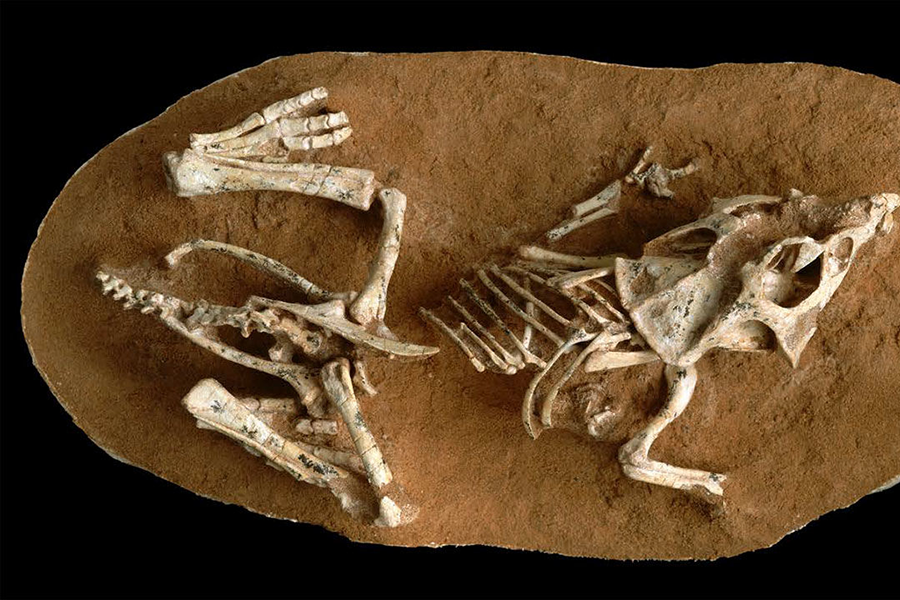How long does it take to hatch a baby dinosaur egg? Too long, say scientists.
Loading...
A massive asteroid and volcanic eruptions have been credited with bringing an end to the dinosaurs’ time on Earth, but a new finding shows another factor may have been at play: the slow process of hatching dinosaur eggs.
While scientists have noted the biological connections between birds and dinosaurs, they may have previously overlooked a stark difference in the incubation times the different animals’ eggs needed to hatch. Bird eggs hatch relatively quickly, but dinosaur eggs likely took between three and six months to hatch, around twice the length of time that birds of a similar size required, according to a study published Monday in the journal Proceedings of the National Academy of Sciences.
“Some of the greatest riddles about dinosaurs pertain to their embryology – virtually nothing is known,” lead author Gregory Erickson said in a statement released Monday. “Did their eggs incubate slowly like their reptilian cousins – crocodilians and lizards? Or rapidly like living dinosaurs – the birds?”
Dr. Erickson, a paleontologist at Florida State University in Tallahassee, came to the conclusions after analyzing incremental growth lines in dinosaur teeth, noting that they likely existed in embryonic dinosaurs as well as those who grew and lived to adulthood, and could help researchers to determine how long dinosaurs spent in an egg before hatching.
But finding that evidence is no easy task. While dinosaur fossils and fossilized eggs have become common specimens, recovering fossilized embryos can prove much more difficult. Erickson teamed up with the American Museum of Natural History in New York City, which had several fossilized embryos in its collection.
Researchers extracted a tiny jawline that held several teeth from one of the embryos, sliced them into sections, and examined them under a microscope, finding dozens of growth lines.
“These are the lines that are laid down when any animal's teeth develops,” Erickson told International Business Times. “They’re kind of like tree rings, but they’re put down daily. We could literally count them to see how long each dinosaur had been developing.”
Researchers were then able to conclude that embryos spent longer than the average bird in incubation, making the extinct, non-avian creatures a closer relative to modern reptiles than birds.
“We’re getting used to thinking about dinosaurs as overgrown birds,” Stephen Brusatte, a paleontologist at the University of Edinburgh who was not involved in the work, told Science Magazine. “This discovery shows that the fast incubation of modern birds … [might] have evolved much later, probably sometime around the origin of flight, or maybe even after flight evolved.”
But the findings also explain how birds later thrived after dinosaurs perished. The prolonged hatch time could have made the dinosaur eggs more vulnerable to predators and floods, while protecting them required their parents stay in one place without succumbing to starvation or other deteriorating conditions for as long as a year, reproducing at rates much slower than birds or mammals.
That, researchers now say, would make them less competitive when vying for resources, ultimately playing a contributing factor in their permanent disappearance.
“The dinosaurs found themselves holding some bad cards,” Erickson told The New York Times. “They had a dead man’s hand.”








